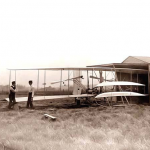by Charles Plant | Jun 8, 2012 | Emotional Intelligence
 I must first admit that I love Survivor. I have watched every single episode, almost all of them when originally aired. Now there are two types of people who like Survivor; really stupid ones and really smart ones. I’m not sure which I am. The reason I like it is that it is so close to the business world that the game becomes reality when looked at in a business context. Just as in business, you need to build a strategy, keep yourself positive, communicate well, build alliances and if you want to win you need to motivate people. These are essential leadership skills that come together in one person only once in a while. The last winner, from Survivor One World was Kim Spradlin, a 29 year old bridal shop owner from San Antonio.
I must first admit that I love Survivor. I have watched every single episode, almost all of them when originally aired. Now there are two types of people who like Survivor; really stupid ones and really smart ones. I’m not sure which I am. The reason I like it is that it is so close to the business world that the game becomes reality when looked at in a business context. Just as in business, you need to build a strategy, keep yourself positive, communicate well, build alliances and if you want to win you need to motivate people. These are essential leadership skills that come together in one person only once in a while. The last winner, from Survivor One World was Kim Spradlin, a 29 year old bridal shop owner from San Antonio.
I’ll do a number of posts about the show in upcoming weeks but this is the first. Kim was really special in terms of past winners as she had it all. She played the game flawlessly and deserves the million dollars. The first thing she had was skill.
You need some degree of skill
Survivor is partly an athletic game so you need some athletic abilities to make it to the end. You don’t have to be the best athlete but at some point in time you must prove yourself on the field of combat. Kim had the perfect set of athletic skills and in fact went on to win four individual challenges. She had competitors like Jay, Matt, Michael and Troy who probably had more athletic ability but in Survivor, that is usually a hinderance. The people with no athletic ability or outdoor skills get voted out first. The ones with very strong athletic skills typically make it to the merger of tribes because of what they offer to the tribe in winning contests. After the merge however, the game is individual and a strong competitor will likley be thought of as a threat and be voted out unless they are really good at getting along with others.
But it takes more than skill
So you’re probably wondering how this compares to business. Well, in business if you are very strong at a certain skill such as finance but weak at emotional intelligence, your career will rise and hit a ceiling at some point in time. You are milked for your skills but don’t make the top rung of the ladder in most situations. That’s why:
‘A’ students work for ‘B’ and ‘C’ students.
by Charles Plant | Jun 4, 2012 | Emotional Intelligence, Exercises
Your ability to control unexpected emotions like anger and frustration and not display other negative emotions are hallmarks of Emotional Intelligence. (I must admit that I wasn’t always very good at this and I like to think that with age comes maturity.) The reason that you need to cure the habit and control negative emotions is probably self apparent.
Nobody wants to work with a Debbie-Downer.
After all, who wouldn’t prefer to work with someone who exhibited happiness over sadness, joy over grief, contentment over frustration. Emotions are contagious and if you’re stuck with a negative person, you’ll find your energy drained and begin avoiding their company.
The first step in curing this nasty habit is to be aware that you’re showing your negative emotions. While it isn’t easy to see these in yourself until after the fact, it is easier to see in people you are working with.
 Try this at work:
Try this at work:
Your exercise this week is to pay attention to coworkers negative emotions. Take out your notebook and write down every time someone at work exhibits a negative emotion. That emotion could be anger, frustration, irritation, cynicism or whatever other negative emotion you detect. When you note this negativity, note how you feel as a result and how this mood affects those around you. If you keep noting this behaviour in others, you’ll come to notice it in yourself and that is the first step to stopping the habit.
When you have a chance, write a comment to tell me about what you observed and whether that made you question your own display of emotions.
by Charles Plant | May 30, 2012 | Emotional Intelligence, Leaders
 When you think of famous inventors, you often think of people working away in their labs, day after day, alone, producing failure after failure until they eventually succeed. Inventors are thus rightly known for their persistence. As a leadership skill, persistence is often underrated. When you think of Orville and Wilbur Wright, you would be right to credit them with persistence but not perhaps for the area in which they exhibited their greatest persistence, that of marketing their invention.
When you think of famous inventors, you often think of people working away in their labs, day after day, alone, producing failure after failure until they eventually succeed. Inventors are thus rightly known for their persistence. As a leadership skill, persistence is often underrated. When you think of Orville and Wilbur Wright, you would be right to credit them with persistence but not perhaps for the area in which they exhibited their greatest persistence, that of marketing their invention.
Innovation = Idea + Marketing
I’ve used this formula before in a blog and when most people think of persistence, they think in terms of coming up with a working idea. In actual fact, marketing can take much more persistence that inventing and Orville and Wilbur Wright are an excellent example of this. You might know that the Wrights made the first powered flight on December 17th 1903. In 1904, they set up an air strip in Dayton and flew every day but hardly any reporters came to see them.
With 105 flights under their belt, they wrote the US government to see if the army might be interested. The War Department responded that they were not interested in providing financial assitance until such a device could be “brought to the stage of practical operation without expense to the US government” which they had already done.
In October of 1905, the Wrights wrote the government again and by this time they had made flights of up to 39 minutes over 20 miles. The War department declined once again with the same comments and this so discouraged the Wrights that they basically ceased flying as the Wrights couldn’t see any use for airplanes other that for military purposes.
Persistence pays off
Finally, in 1907, an employee on the Army Signal Corps who was following the early flight pioneers convinced the government to give airplanes a try. The government acting very responsibly, put out a tender and got 41 bids. The Wrights finally won the tender and were able to make a sale to the US government. their persistence had paid off but it took almost 5 years from when they made their first flight until they got their first sale.
As a leader, are you persistent or do you give up too early?
 I must first admit that I love Survivor. I have watched every single episode, almost all of them when originally aired. Now there are two types of people who like Survivor; really stupid ones and really smart ones. I’m not sure which I am. The reason I like it is that it is so close to the business world that the game becomes reality when looked at in a business context. Just as in business, you need to build a strategy, keep yourself positive, communicate well, build alliances and if you want to win you need to motivate people. These are essential leadership skills that come together in one person only once in a while. The last winner, from Survivor One World was Kim Spradlin, a 29 year old bridal shop owner from San Antonio.
I must first admit that I love Survivor. I have watched every single episode, almost all of them when originally aired. Now there are two types of people who like Survivor; really stupid ones and really smart ones. I’m not sure which I am. The reason I like it is that it is so close to the business world that the game becomes reality when looked at in a business context. Just as in business, you need to build a strategy, keep yourself positive, communicate well, build alliances and if you want to win you need to motivate people. These are essential leadership skills that come together in one person only once in a while. The last winner, from Survivor One World was Kim Spradlin, a 29 year old bridal shop owner from San Antonio.

